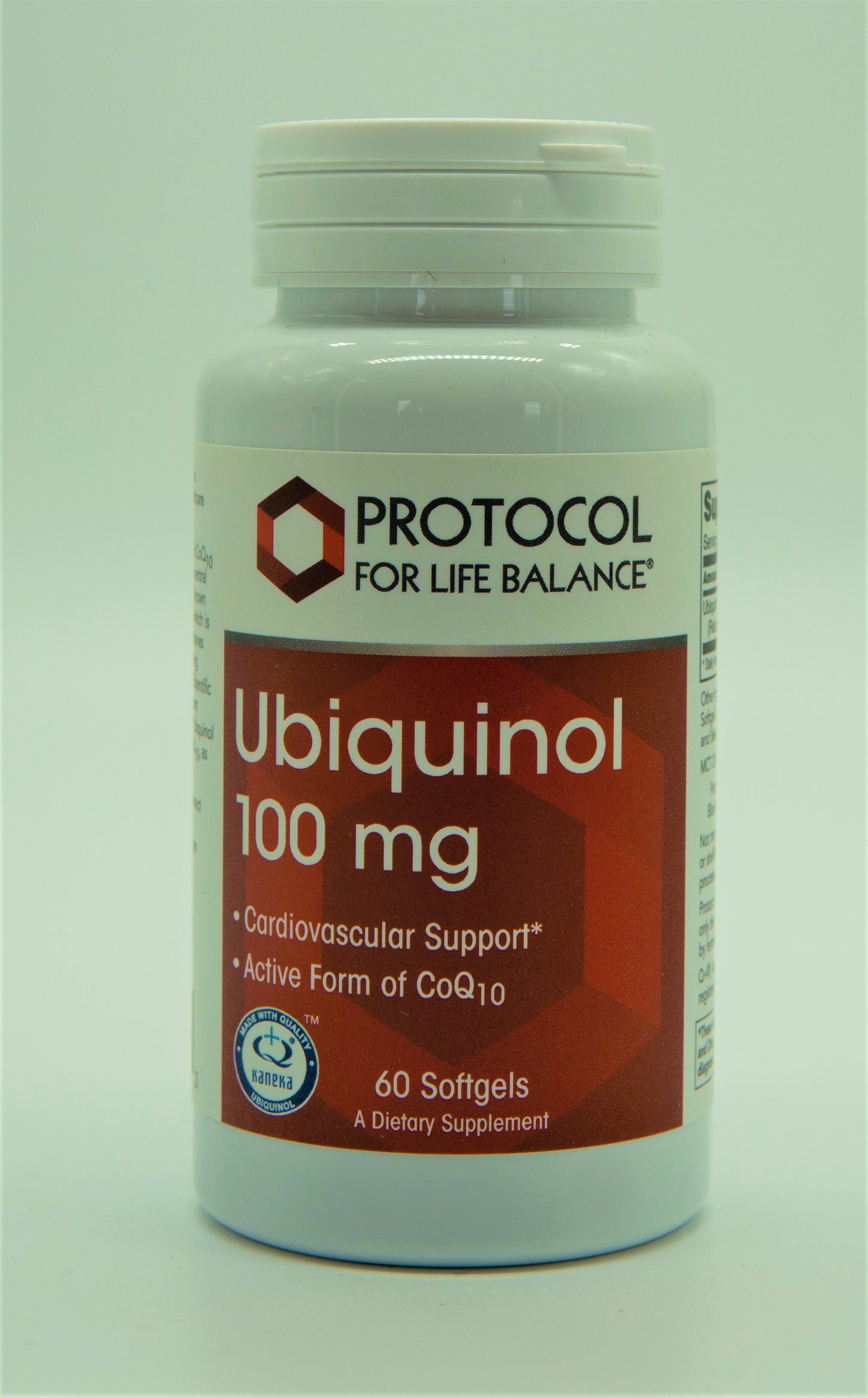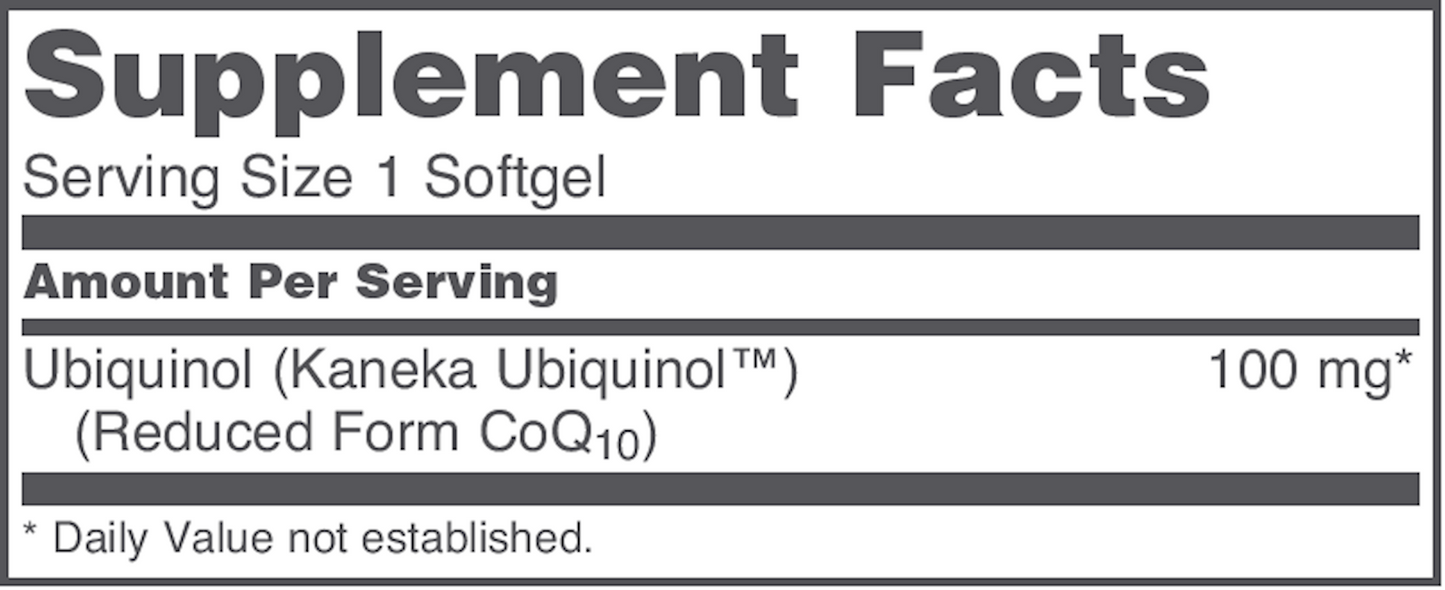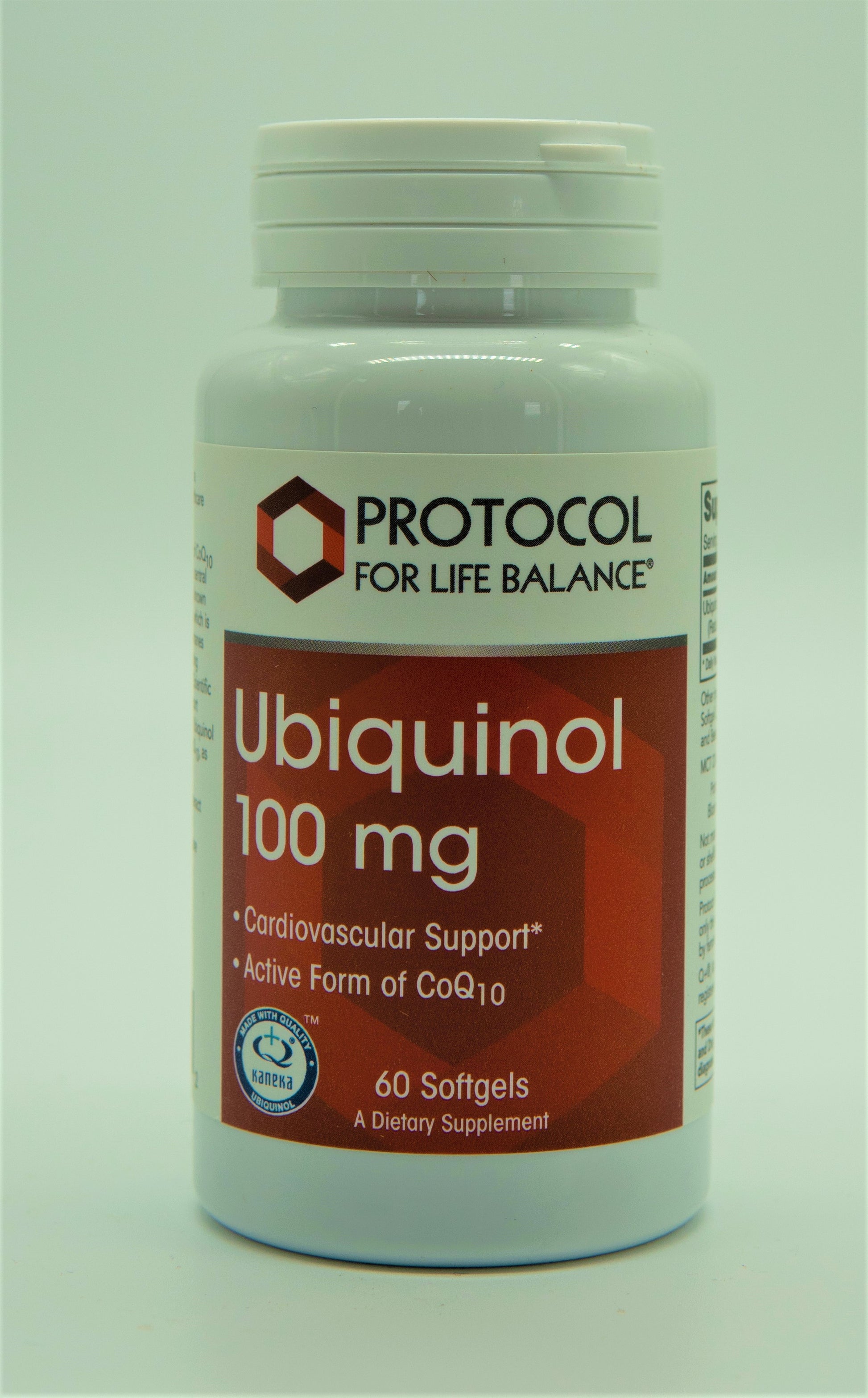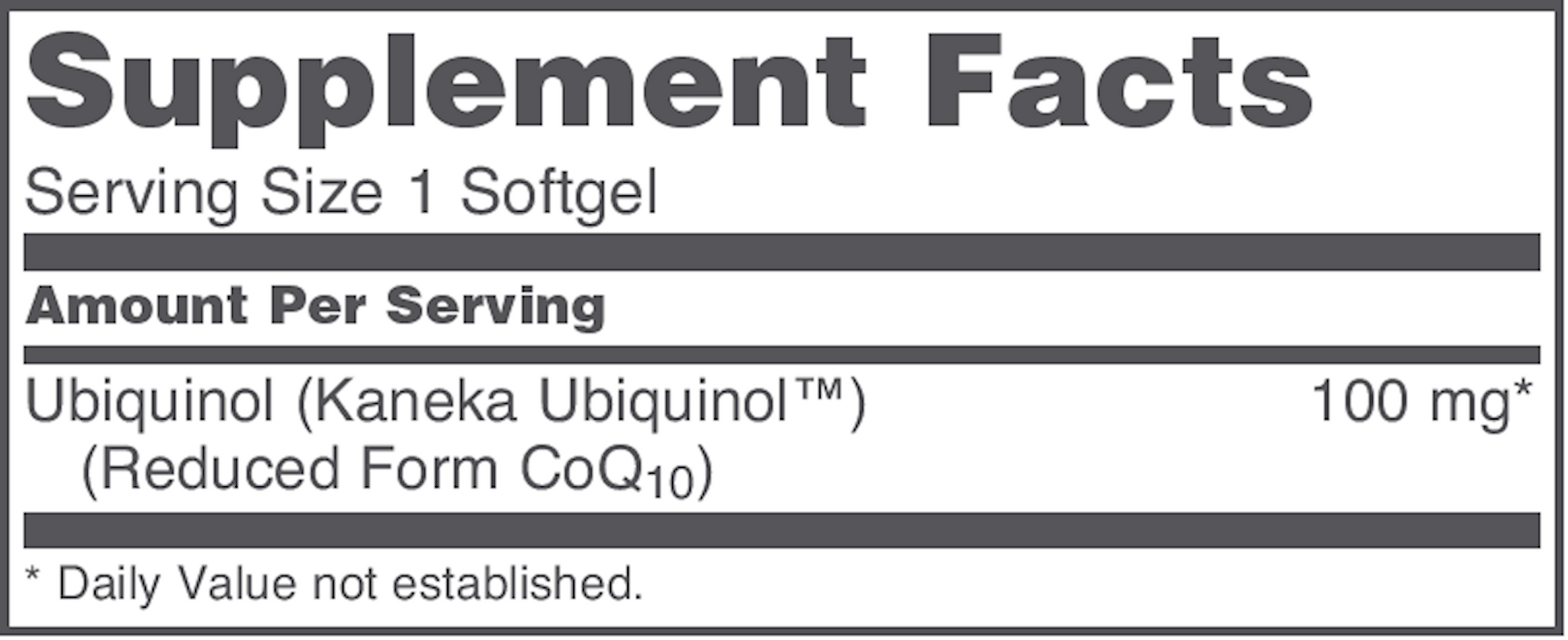Ubiquinol 100mg Protocol
Ubiquinol 100mg Protocol
Couldn't load pickup availability
The nutritional supplement CoQ10 (ubiquinone) is commonly recommended for cardiovascular, neurological, and healthy aging support.*
Ubiquinol (QH) is very unstable outside of the body and it readily converts to CoQ10 when exposed to oxygen. Using a patented process to stabilize QH, the bioactive form of CoQ10 is able to retain its structure and unique properties. UBQH is the stable and reduced form of CoQ10, which can provide the direct supplementation that ordinary, oxidized CoQ10 cannot.
Why Choose UBQH?
• Appropriate for patients requiring high doses of CoQ10.
• Ubiquinol offers superior bioavailability compared to ubiquinone and can better replenish the normal CoQ10 plasma concentration.*
• Preliminary studies have shown that the CoQ10 balance (ratio of ubiquinol to total CoQ10) is affected by aging, health condition, and strenuous exercise.*
• Conventional CoQ10 supplements need to be converted to ubiquinol in order to be used by the body.
Description
Coenzyme Q10, or CoQ10, is dynamically cycled between two states: ubiquinone, the oxidized state that shuttles electrons, and ubiquinol, the reduced state that releases electrons. Ubiquinol is an unstable compound and converts to ubiquinone upon exposure to light or oxygen. However, research has led to the development of a method to stabilize ubiquinol. UBQH contains Kaneka QH™, patented (US10/501,698 US Appl. # 20050147598), stabilized, active ubiquinol. In older individuals, supplementation with stable ubiquinol resulted in greater sustained plasma levels of the active form of CoQ10 (ubiquinol).*
How It Works
CoQ10 is a nutrient that’s found in the mitochondria. Called a “coenzyme” because of its unique ability to participate in chemical reactions and remain unchanged, CoQ10 assists in two vital cellular activities:
ATP production and free radical scavenging.* To carry out these activities, mitochondrial CoQ10 continuously cycles from ubiquinone, its ATP production state, to ubiquinol, its antioxidant free radical scavenging state.* Ubiquinone contributes to ATP production by the shuttling or transporting of electrons.* To meet the considerable energy needs of cellular activities, the electron transport chain makes considerable quantities of ATP.* The electron transport chain also creates an enormous amount of free radicals – about 1 trillion oxygen radicals per cell every day. Most of these oxygen radicals are contained within the membrane folds of the mitochondria; however, about two percent are able to get free.The antioxidant form of CoQ10, ubiquinol, scavenges free radicals within the mitochondria and cell membranes.*
The highest concentration of CoQ10 is found in cardiovascular (heart), nervous system (brain), liver, and kidney cells.
Plasma measures of CoQ10 are the sum of both Q10 (ubiquinone) and QH (ubiquinol). Total CoQ10 measurement consists of the sum of both ubiquinone and ubiquinol levels. For most people, the total circulating CoQ10 measurement is approximately 95% ubiquinol and 5% ubiquinone.
Clinical Research
The benefits of supplementing with ubiquinol have been demonstrated in clinical research.Conversion of CoQ10 In some instances, individuals do not benefit from CoQ10 (ubiquinone) supplementation. A study by Watson demonstrated a mean plasma CoQ10 level of only 1.7 µg/ml in the active group with only two of 30 subjects (ages 18–75 years old) having a level greater than 2.0 µg/ml.9 The Khatta trial, which included fifty-five participants (mean age of 64 years), demonstrated a mean plasma CoQ10 level of 2.2±1.2 µg/ml indicating that some patients in the active group had levels as low as 1.0 µg/ml.10
Absorption of Ubiquinol
It has been clearly demonstrated that reduced CoQ10 (ubiquinol) is better absorbed than oxidized CoQ10 (ubiquinone) and can better replenish the CoQ10 in the plasma.* In a head-to-head study comparing 100 mg of ubiquinone to 100 mg of ubiquinol in subjects older than 60 years, the reduced form, ubiquinol, showed a 430% increase in plasma levels with peak concentrations occurring several hours faster.
Energy Production
CoQ10 supports energy production levels which are affected by aging, health condition, and exercise.* One hundred Olympic-level athletes realized a significant improvement in a measure of peak power production over placebo after supplementing with 300 mg of ubiquinol.*14 In a much smaller study, the same dose schedule was used and while plasma levels of both ubiquinol and ubiquinone increased, not all athletes realized increased performance.
Cardiovascular Benefits
Ubiquinol is beneficial to the cardiovascular system.* In one study, subjects with low plasma CoQ10 levels despite an average ubiquinone dosage of 450 mg/day were given UBQH instead (average dosage, 580 mg/day). The mean plasma CoQ10 concentration then increased from 1.6 µg/ml to 6.5 µg/ml. A
2011 study demonstrated the ability of ubiquinol to support healthy lipid metabolism.* The study included 53 healthy men who were given 50 mg of QH ubiquinol three times daily for two weeks. The researchers reported that supplementation with ubiquinol was shown to support healthy LDL cholesterol metabolism.*
Conclusion



